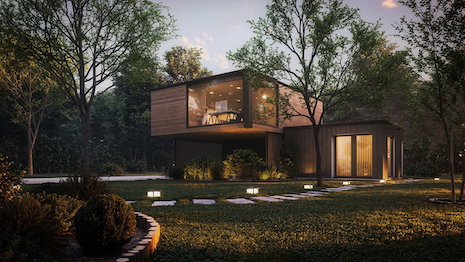 Image credit: Luxury Portfolio International
Image credit: Luxury Portfolio International
The luxury real estate market is facing unprecedented levels of activity, and an inventory crisis is only adding to the competitive environment.
During the Luxury Hour webinar hosted by Luxury Portfolio International on May 19, real estate experts discussed how demand for high-end homes is outpacing supply as affluents leverage the COVID-19 pandemic to invest make property investments. These circumstances have further exacerbated existing inventory issues, and agents and brokers will have to turn to elevated services and offerings to win more business.
“You’ve got to really hone your strategy as to how you’re going to find the inventory for the for the needs out there and really target different markets,” said Kristine Burdick, president for the Midwest at Howard Hanna Real Estate Services.
Luxury Hour was moderated by Mickey Alam Khan, president of Luxury Portfolio International and editor in chief of Luxury Daily, New York.
Market predictions
Empowered by the flexibility of remote work, a strong stock market and record low mortgage rates, affluents have looked to suburban luxury markets since the start of the pandemic.
According to Lawrence Yun, chief economist and senior vice president of research at the National Association of Realtors, these conditions have contributed to tight market conditions.
While the population of the U.S. has grown, housing inventory is at its lowest levels in decades. With competition up, an estimated one-third of homes are selling above listing price and buyers are making offers without contingencies or inspections.
New builds will help easy supply issues, as new homebuilding has not kept up with the pace of population growth. However, builders are facing hurdles including high lumber and material prices and labor shortages.
Dr. Marci Rossell, chief economist of Leading Real Estate Companies of the World, believes that the transformation of office space into residential housing could also ease inventory issues which exist across price points.
“Every change in one sector of the housing market, even the lowest segment of the housing market, has ripple effects all the way up the ladder,” Dr. Rossell said.
The inventory crunch and desire for more space has also revived interest in “McMansions,” which had been facing extended time on the market prior to the pandemic. While large suburban homes may usher in memories of the last financial crisis, speakers agreed the current real estate environment is not comparable.
“We are not seeing a similar situation as 2006, 2007,” Mr. Yun said. “We don’t have those risky subprime mortgages that overstressed people’s budgets.
“The cumulative effect of underproduction is that we don’t have homes for sale, so that’s the reason for the housing shortage,” he said. “With so many buyers, it’s definitely a frenzy, but it’s not a bubble in terms of what happened 13 years ago.”
Mr. Yun predicts housing prices will continue to climb, but hopes for more moderate growth of 3 to 5 percent.
Best practices
For agents and brokers to stay competitive in the busy luxury market, they will need to be flexible, build relations and stay top of mind with clients. For affluents, “silver platter experience” is the expectation.
Staying knowledgeable about trends — including marketing strategies and buyer priorities — is also key.
Michael LaFido, founder and CEO of Marketing Luxury Group, has seen agents and brokers embrace video with new levels of enthusiasm since the start of the pandemic.
“You have to differentiate yourself,” Mr. LaFido said. “You need to have a unique value proposition.”
Real estate brokers have been this time to build digital relationships with clients.
Agents and brokers are often taking the role of presenting video tours on Zoom, Facebook Live or Instagram Live. They also serve as a resource for important developments and have an opportunity to connect with customers through email newsletters and social posts that counsel clients in how to navigate buying and selling during lockdowns (see story).
Meanwhile, while short-form video platform TikTok may be best-known for viral trends and its popularity among Generation Z consumers, its use as a legitimate marketing tool for luxury real estate continues to grow.
With its emphasis on short-form content, the platform also has lower overhead costs than other high-production efforts while allowing firms to safely show properties. Agents can also showcase their personalities on TikTok to differentiate themselves (see story).
“What are you going to do to continue to build relationships, build your inventory and set yourself apart as exclusive luxury real estate agents,” Ms. Burdick said.